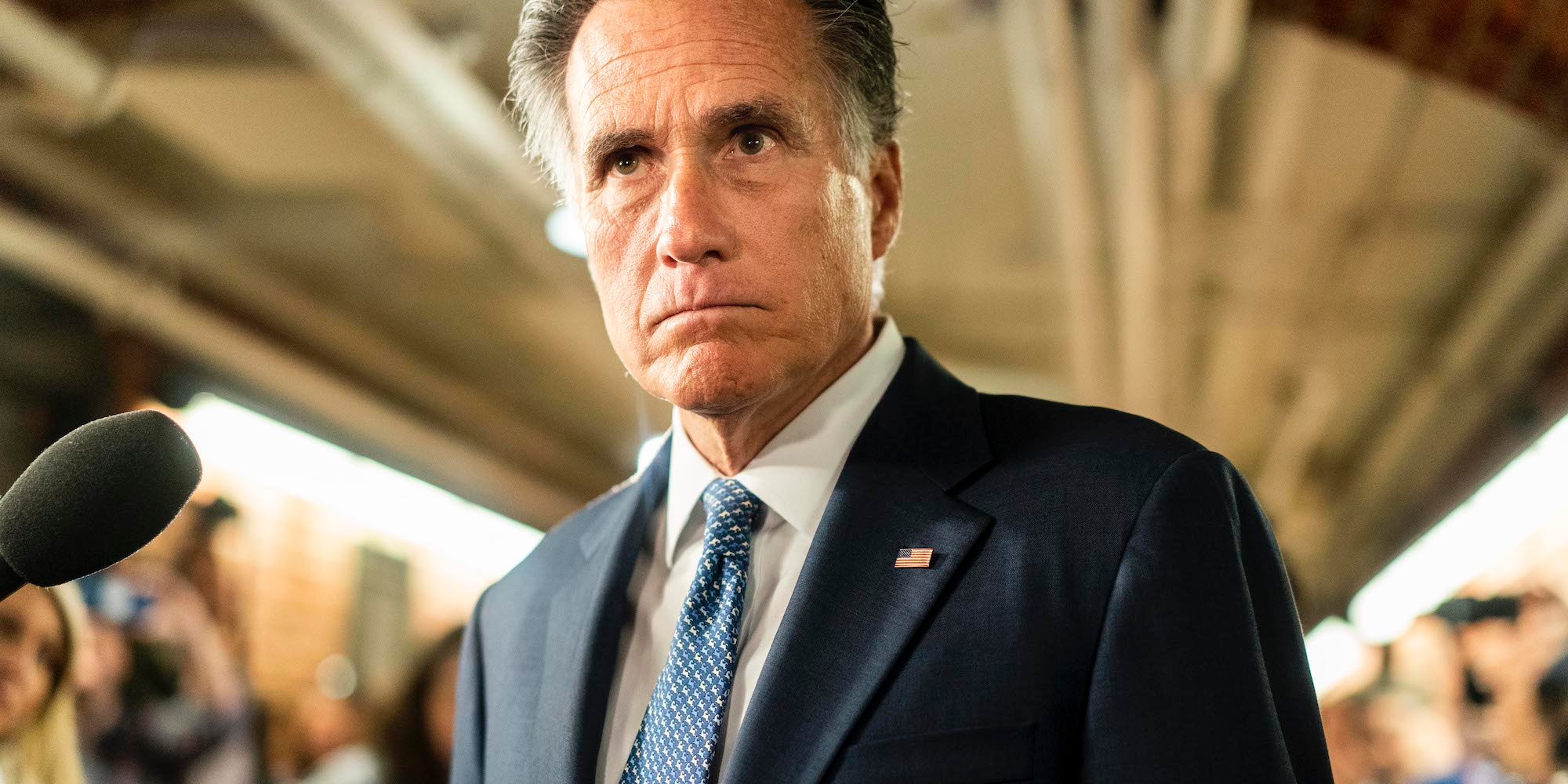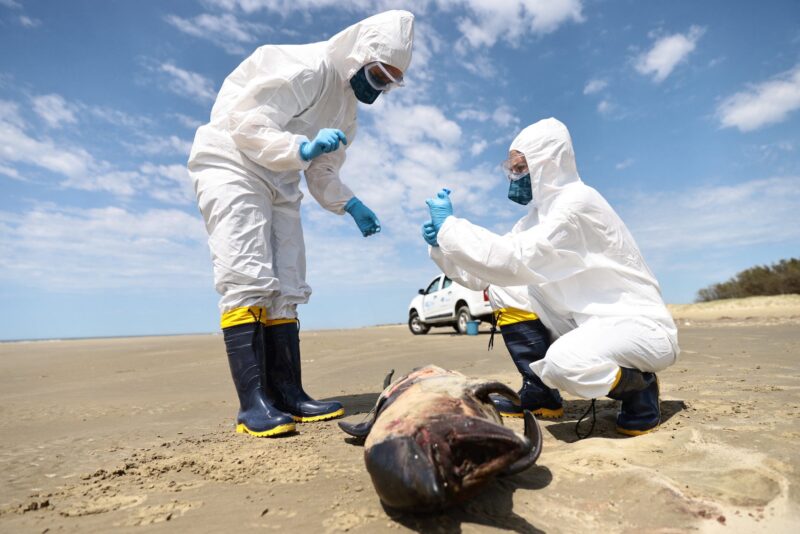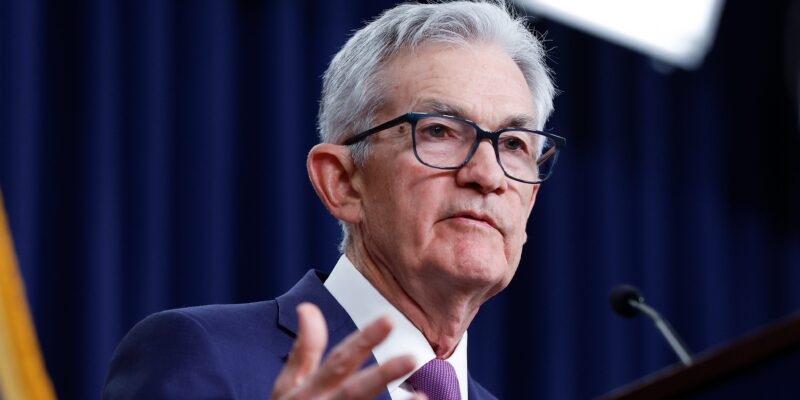- Mitt Romney, a Harvard graduate, spent 25 years in the private sector earning hundreds of millions of dollars before entering politics.
- His political career has been tumultuous. He became the Massachusetts Governor, and Utah’s senator, but he also lost two presidential races, in 2008 and 2012.
- In February 2020, he voted to convict President Donald Trump at the end of the Senate’s impeachment trial. It was the first time a senator had ever voted against a same-party president.
- Visit Business Insider’s homepage for more stories.
Mitt Romney has had his fair share of highs and lows.
After 25 years in the private sector, earning hundreds of millions of dollars, he followed in his father’s footsteps and entered politics. He lost the first time, and vowed to never run again unless he thought he had a chance.
He later became the Massachusetts Governor. He also lost two presidential races, in 2008 and 2012.
Over his career, one of his biggest challenges was shifting from local to national politics. In moving to the national stage, he changed his position on subjects like abortion and gun control, which led to some labeling him a “flip-flopper.”
When he lost his second presidential bid in 2012, pundits declared his time in politics over. He, too, worried he would be a "loser for life." But they were all wrong. He returned to politics in 2018, being elected to the Senate from Utah.
Since his return, he's been something of a President Donald Trump dissident - especially regarding the president's behavior. But it went up a notch in February, when he voted to convict Trump at the end of the Senate's impeachment trial.
It was the first time a senator had ever voted against a same-party president.
Here's his life so far, in photos.
Willard Mitt Romney was born on March 12, 1947, in Detroit, Michigan. He was the fourth child of George and Lenore Romney, and something of a surprise. Lenore took about a year to recover from the birth, and in that time he and George grew close.

Sources: The New Republic
He was raised in a disciplined house in Bloomfield Hills where chores were done, and summer jobs were worked. His early ambition wasn't politics, but cars. His father was the head of American Motors, and Romney told The American Spectator, "I hoped to be head of Ford or American Motors or General Motors."

Sources: The New Republic, New York Magazine, The New Yorker
He went to Cranbrook, an elite private school. He was a "B+ student" according to The New Republic, and "more popular than admired."
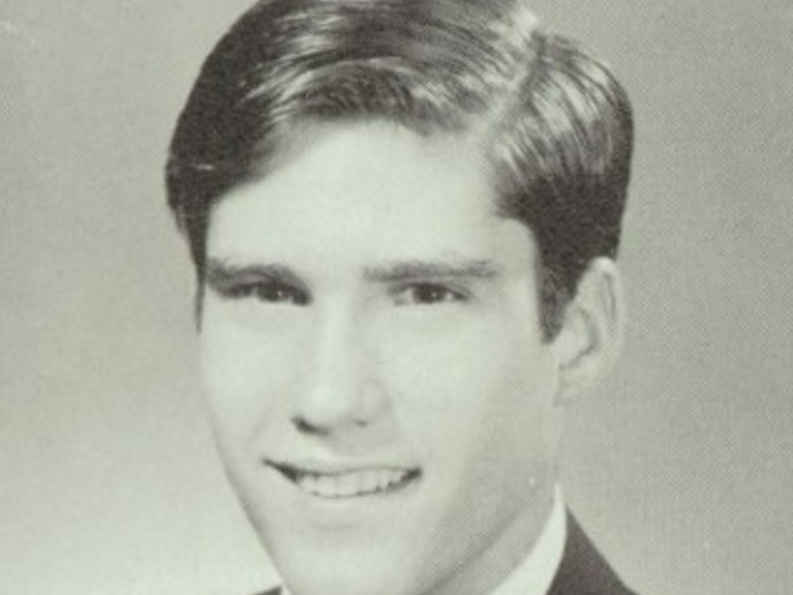
Source: The New Republic
He also wasn't too athletic. However, one memorable event from his schooling was a track race in his last year. He needed to finish the race for his team to won, but he collapsed near the end. His team mates tried to help him, but he pushed them away, and managed to make it on his own, finishing to a standing ovation.

Source: The New Republic
Romney was still at school when his father entered politics. George was a moderate Republican. He was also popular for a time. In ninth grade, George was on the cover of Time. He would end up serving as the governor of Michigan, and the secretary of Housing and Urban Development under President Richard Nixon.

Sources: The New Republic, History News Network
He went to Stanford University in 1965. During the year, he protested to support the drafting for the Vietnam War, showing his conservative politics. He left after a year to go to Paris. He would ultimately graduate valedictorian, from Brigham Young University with a B.A. in English.

Sources: The Washington Post, The New Republic, Deseret News
In the late 1960s, he spent nearly three years as a Mormon missionary in France, returning in 1969. He's a sixth generation Mormon. During his time, he read a book called "Think and Grow Rich," a 1937 book all about how to succeed, focusing on persistence and being organized.
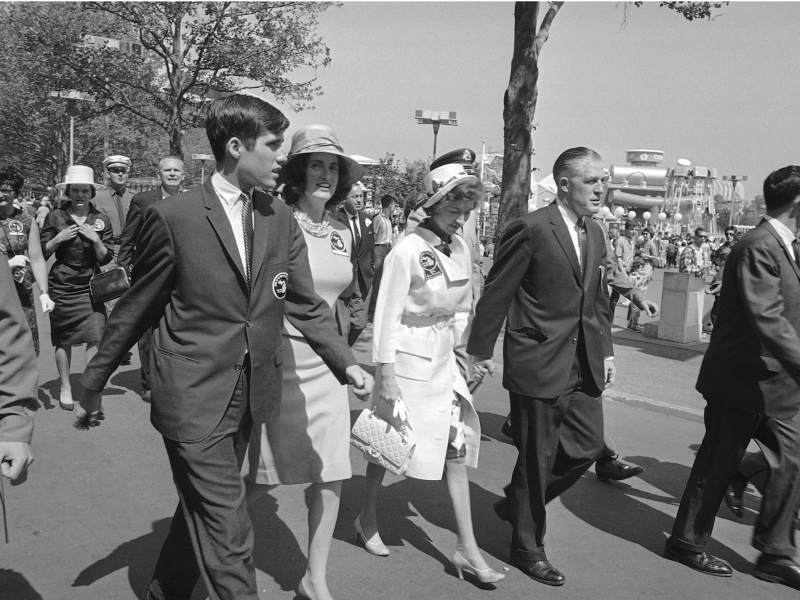
Sources: Deseret News, The New Yorker
Three months later he married Ann Davies, who he had started dating in high school. They have been together ever since.

Source: Deseret News
In 1975, he went to Harvard law and business school. He wanted to study business, but his father wanted him to do law, so he did both. He graduated in the top 5% of his business class, and cum laude in law.

Sources: The New Republic, New York Magazine, The New Yorker
In 1975, Romney started a career in management consulting and private equity. After several years at a Boston consulting firm, he jumped ship to Bain & Company. Founder Bill Bain said that when Romney started at his firm, "he had the appearance of confidence of a guy who was maybe 10 years older."

Sources: The Boston Globe, The New York Times, The New Republic, Slate
The firm was known as the KGB of management consulting, according to The New Yorker. No one had business cards, and they spoke in code in public. Romney's talent at management was noted, and he rose through the ranks, then branched out to create an investment group within Bain. Right away, he was pledged $12 million.

Sources: The New Republic, New York Magazine, The New Yorker
Romney's division was responsible for investing and growing businesses like Domino's, Brookstone, and Duane Reade. According to New York, Romney was responsible for pioneering the "business takeover," but Romney was a cautious leader, and many remembered him literately sweating intensely.

Sources: The New Republic, New York Magazine
The Romney family grew as his career flourished. They had five sons: Tagg, Josh, Matt, Craig, and Ben.

Source: Business Insider
In 1981, he also had a run-in with the law. He was arrested after launching his boat into a lake, when the license wasn't visible enough. He was handcuffed at the time, but a few days later the charges were dropped.

Source: Deseret News
Ann pushed Romney towards politics. In 1993, she reportedly urged him to run for the US senate.

Sources: Deseret News, The New Yorker
By 1994, he was estimated to be worth several hundred million. He told The New Republic he left business for politics because it was in the "family gene." He said, "There's something in the Romney makeup that longs to be able to make a difference, to make a contribution. ... There's almost an obligation to step forward."
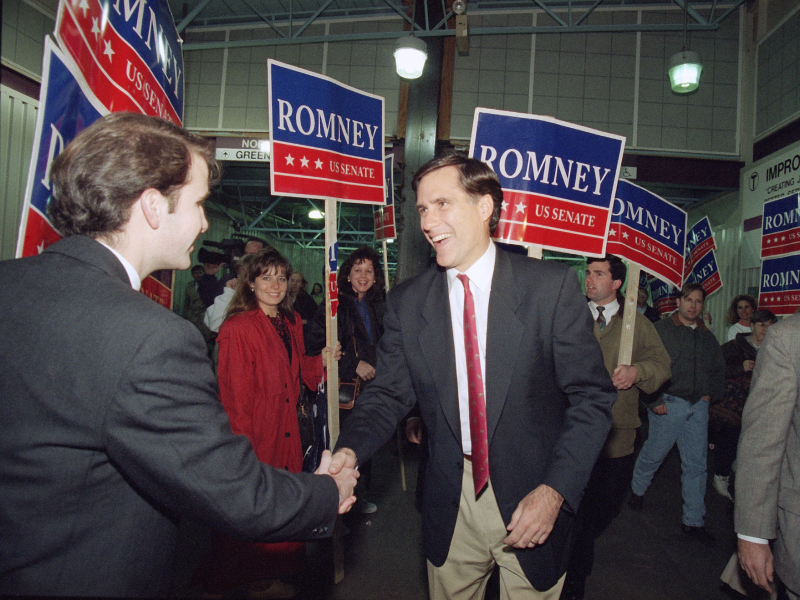
Sources: The New Republic, The New Yorker
In 1994, he challenged Democratic Sen. Edward Kennedy for his seat in Massachusetts. It's a typically Democratic state, and was going to be tough to win. According to The New Yorker, he positioned himself as a moderate conservative. For instance, he tried to argue he was a stronger gay rights advocate than Kennedy.

Sources: The New Republic, Slate, The New Yorker
Romney led the polls for a brief moment, but Kennedy used abortion as a key issue, with a catchy quote, "He's not pro-choice, he's not anti-choice, he's multiple choice." Romney lost the race.
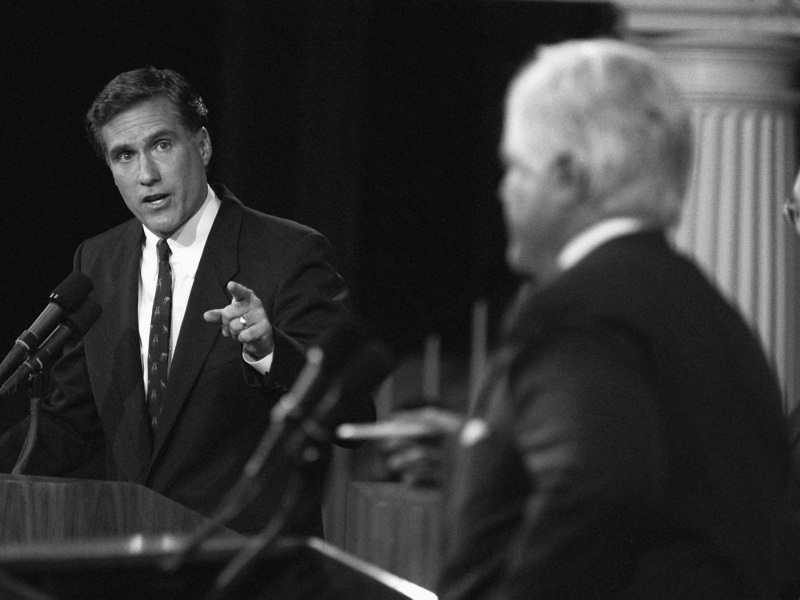
Sources: The New Republic, The New Yorker
Although he hadn't expected to win, the loss struck a nerve. He told his brother that he would never do another campaign unless he thought he could win. He returned to the private sector. All up, he would spend 25 years working in business.

Source: The New Republic
In 1999, Romney returned to public service to head the struggling Salt Lake Organizing Committee for the Olympic Games in Utah. When he took over, he had to deal with a bribery scandal, as well as a massive deficit in funding — about $387 million.
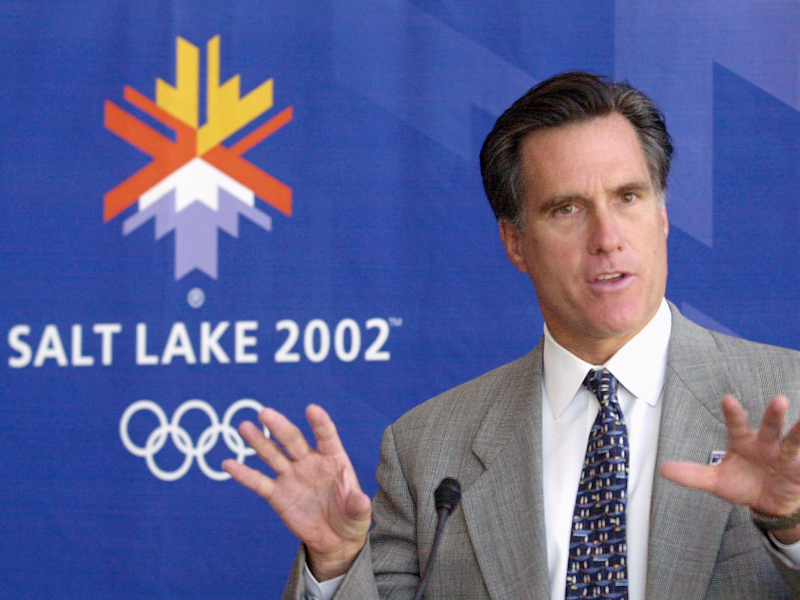
Source: The New Yorker
He helped turn the organization around by cutting costs and getting more money from the federal government. He used his success as proof of his leadership abilities while running for political office.
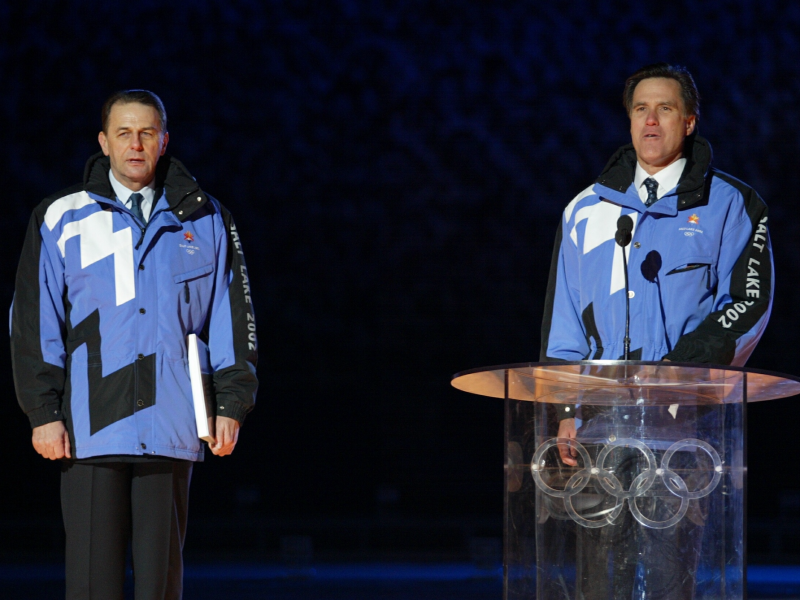
Source: The New Yorker
After his stint running the Olympics in Utah, Romney ran for governor of Massachusetts. His campaign was pro-choice.

Source: The New Yorker, Boston Globe
He ultimately defeated his democratic opponent, Shannon O'Brien. Romney served one 4-year term as governor.

Sources: Boston Globe, The Atlantic
As governor of a mostly left-leaning state, Romney projected himself as a moderate Republican. During his tenure, in contrast to his Mormon religion, he was against taxing cigarettes, and made alcohol easier to sell.
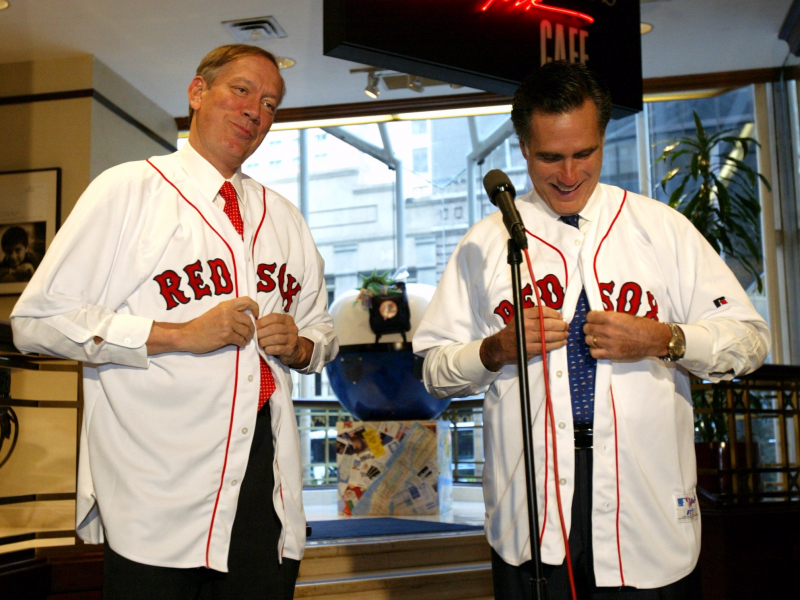
Sources: Mother Jones, The New Yorker
In 2004, signs of bigger ambitions appeared. Stem cell research was the subject. He had changed long-held views about it, and he went public by calling The New York Times, rather than contacting someone local.
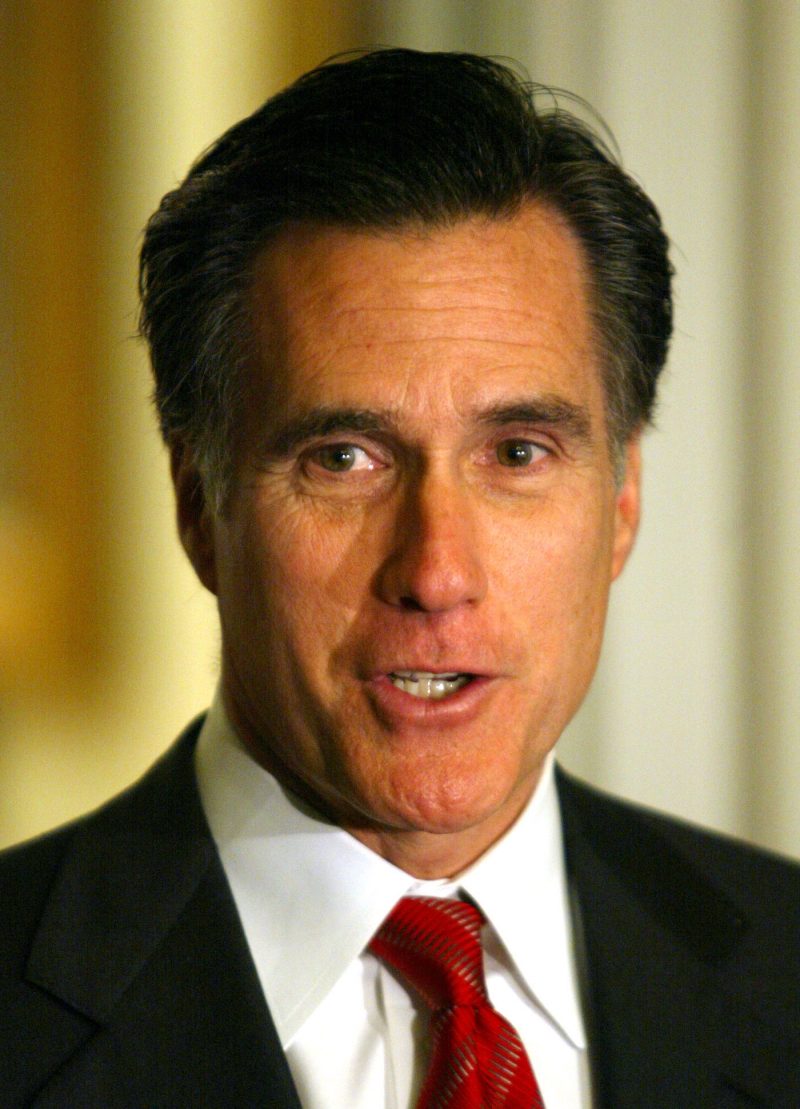
Source: The New Republic
In 2006, Romney signed a health reform bill into law. So-called "Romneycare" required Massachusetts residents to either buy a plan or pay a fine. The law became a source of controversy during the 2012 election amid President Barack Obama's attempts to implement the Affordable Care Act, which included a similar individual mandate provision.
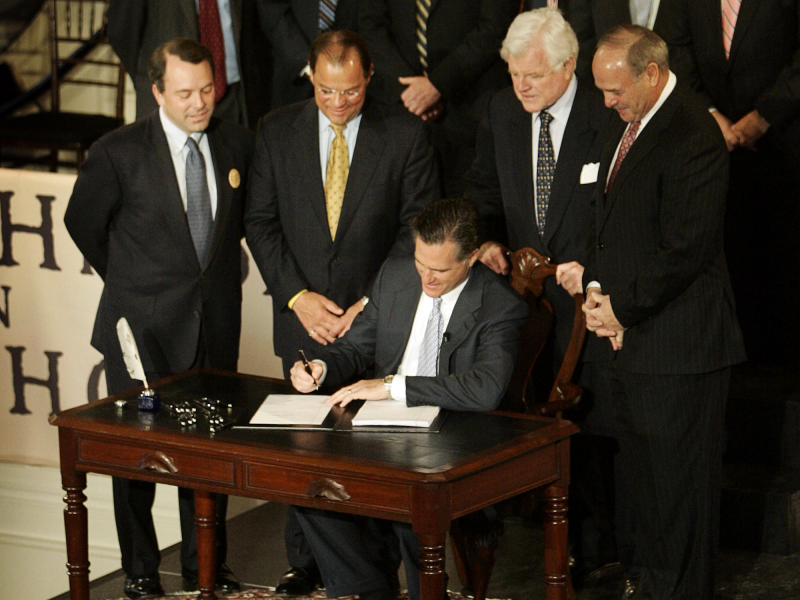
Sources: Boston Globe, CNBC
In 2008, Romney ran for president. Moving from state to national politics, especially from Massachusetts, a liberal state, to presenting himself as a conservative force wasn't easy for Romney. He was accused of being a "flip-flopper," on issues like abortion and gun control.
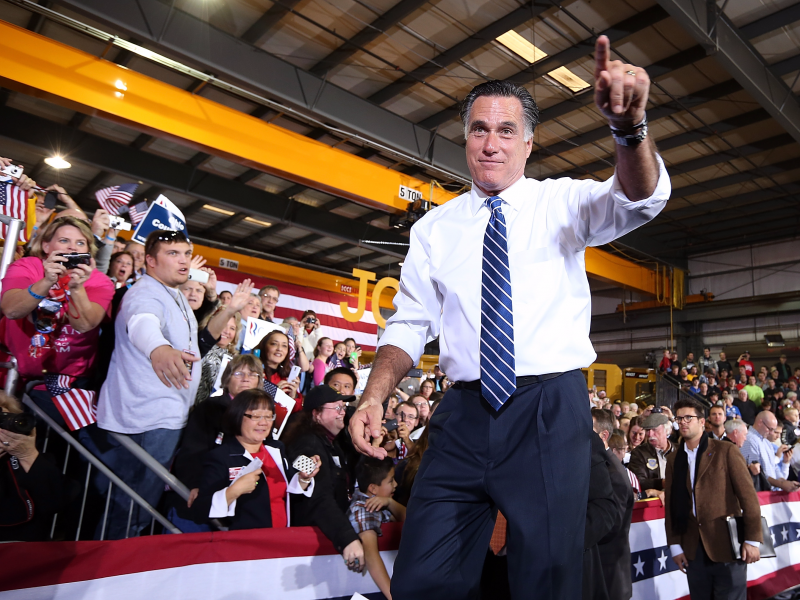
Source: The New York Times
He lost to John McCain during the Republican primaries. He said he was dropping out in February to unify the Republicans, and to ensure the Iraq war continued. "Because I love America, in this time of war, I feel I have to stand aside for our party and our country," he said.

Source: The New York Times
Following McCain's defeat, support for Romney eventually propelled him to the top of the Republican ticket in the 2012 presidential race.

Source: Reuters
Romney was the first Mormon to represent a major party in his run for president in 2012.

Source: Constitution Center
This time around Romney had trouble connecting with voters. Many viewed him as elitist and privileged because of his work in private equity and decades in politics. During the campaign, a video leaked of Romney calling 47% of American voters "entitled" and "dependent upon the government," further damaging his image.

Source: Politifact
During his campaign, he kept pushing to the right, focusing on conservative positions. At one point he said, instead of closing Guantanamo Bay down it should be twice as big.

Source: The New Republic
But the infamous '47% comment' plagued Romney's campaign. Obama handily won reelection.

Sources: Los Angeles Times, Washington Post
After the election, Romney kept a low profile. He told The New York Times he expected to be a "loser for life." In 2014, on a Netflix documentary about his presidential campaigns, he explained the hopelessness, when he said, "Mike Dukakis can't get a job mowing lawns."
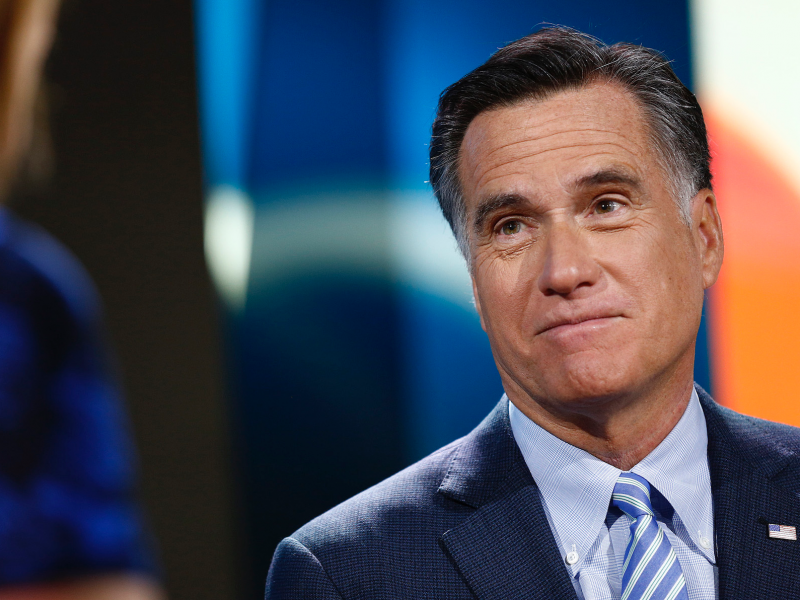
Sources: The New York Times, The New York Times
In 2015, he reemerged in a charity boxing bout with five-time heavyweight champion Evander Holyfield.

Source: NBC News
As the 2016 presidential election approached, rumors swirled that Romney was considering a third run for higher office. Everything changed when Donald Trump announced his candidacy.

Sources: CNN, The New York Times
During the 2016 campaign, Romney slammed Trump, calling him a "phony," "fraud," "con man," and "fake."

Source: Business Insider
But Romney dialed back his anti-Trump rhetoric after Trump won the election. During the presidential transition, Romney had a private dinner with Trump, fueling speculation that he might be appointed to a position as secretary of state.

Sources: Business Insider, The New York Times
After Sen. Orin Hatch of Utah announced he would retire at the end of his term, rumors indicated that Romney was considering a run for the US senate seat. He later said he hadn't been interested in the business world, and his wife wanted him to run. She convinced him it wasn't a downgrade from running for president.

Source: The New York Times
Republicans lined up to support the GOP hopeful. Though the pair have a checkered past, Trump tweeted his support.

Source: Business Insider
In November 2018, Romney won the race to be Utah's senator. Before the took position, there was already an expectation he would be a dissenting voice in the Senate, against Trump.
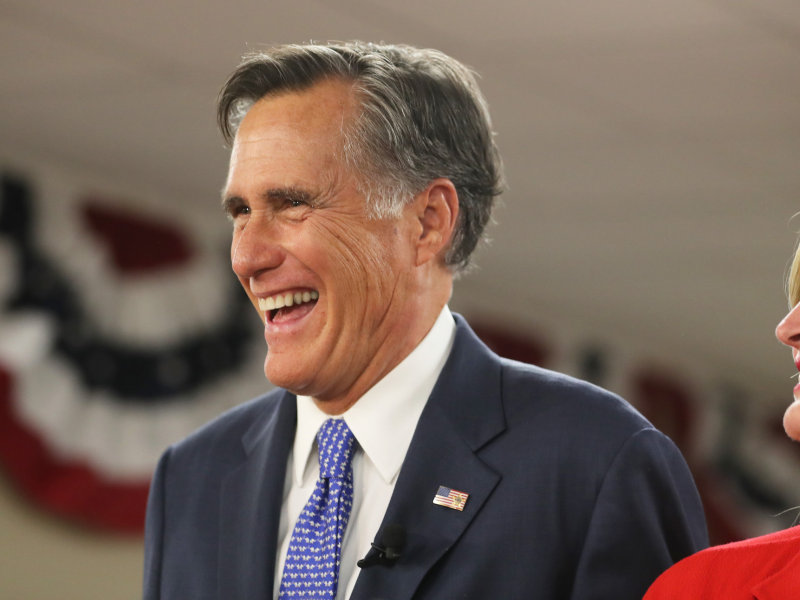
Source: The Hill
In January 2019, before he was sworn in, he published an opinion piece in the Washington Post. He wrote that Trump hadn't been his choice for president and that it was "evident that the president has not risen to the mantle of the office."

Source: Washington Post
As the year continued, he had a new role in politics, according to The New York Times, "a hybrid role of sober statesman and maverick in a party struggling to reconcile the oft-irreconcilable impulses of its leader." Romney criticized the president for his behavior more than his policies.

Sources: The New York Times, Washington Post
In October, Slate discovered he had a secret Twitter account, called "Pierre Delecto."

Source: Slate
Towards the end of 2019, as Trump's impeachment approached, the pressure rose, and Romney asked himself what his father would do.
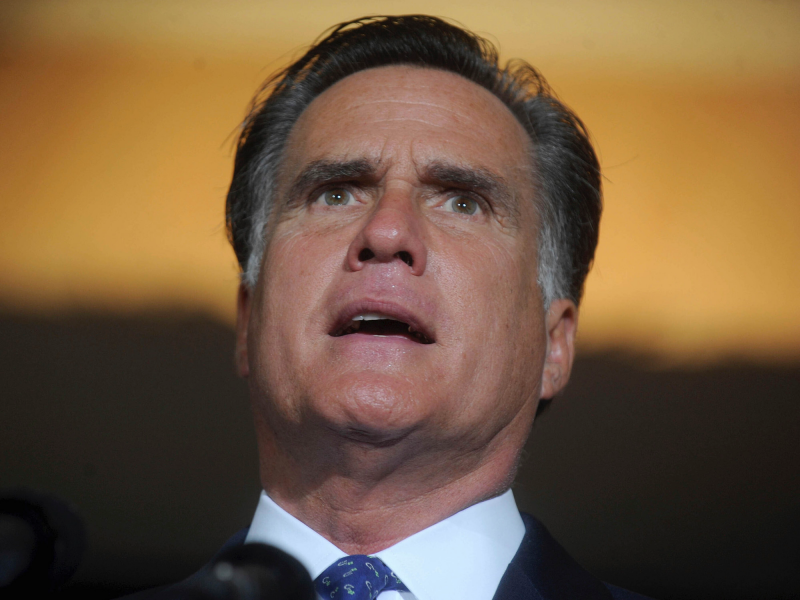
Source: The New York Times
In February 2020, Romney showed he wasn't afraid to break ranks with the party. He was one of two Republicans to vote for the Senate to bring in witnesses. The vote was defeated by his party.
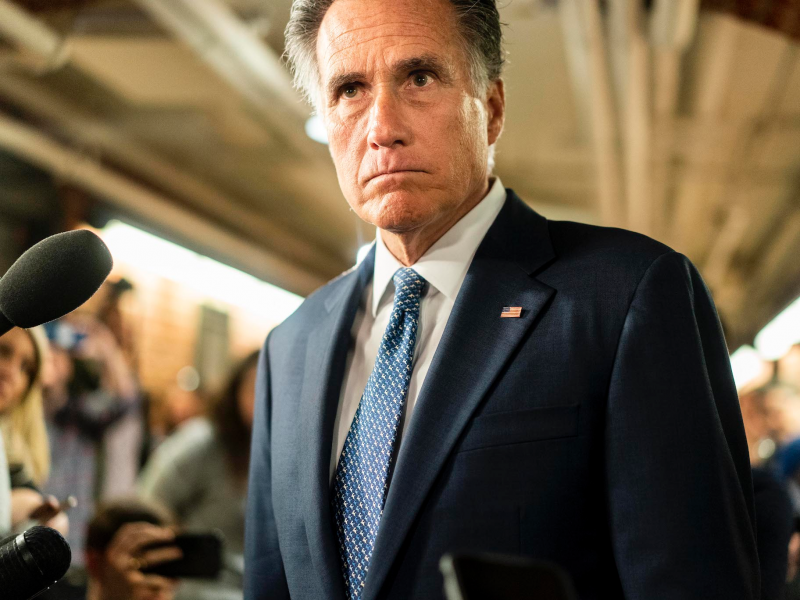
Source: Business Insider
He made history later that week when he voted to convict President Donald Trump. He was instantly criticized for his position. But as he told his former strategist Stuart Stevens, "The worst thing that could happen to anyone in politics has already happened to me. I lost the presidency."

Sources: The New York Times, Washington Post
Romney is now alone in the Republican Party. It's hard to say how long the effects of his vote will last. But he's been in politics long enough to know what he was getting into.
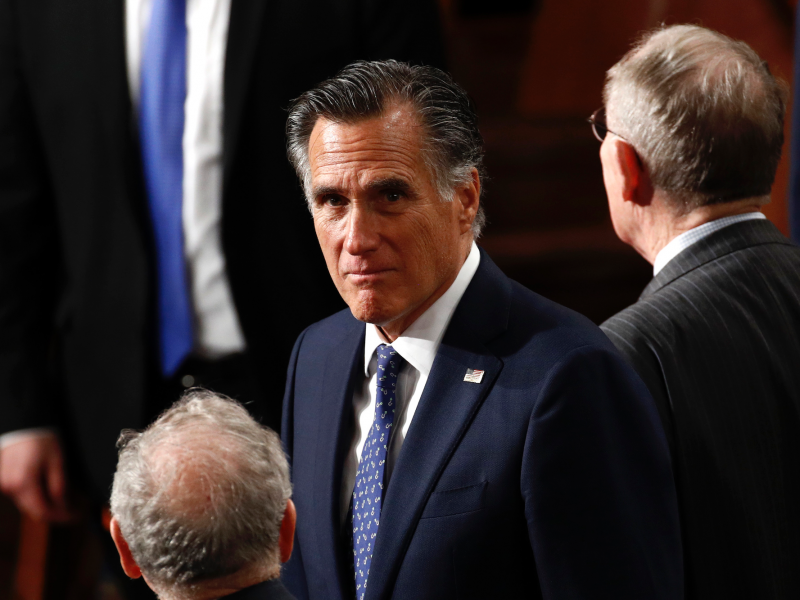
Source: Washington Post
